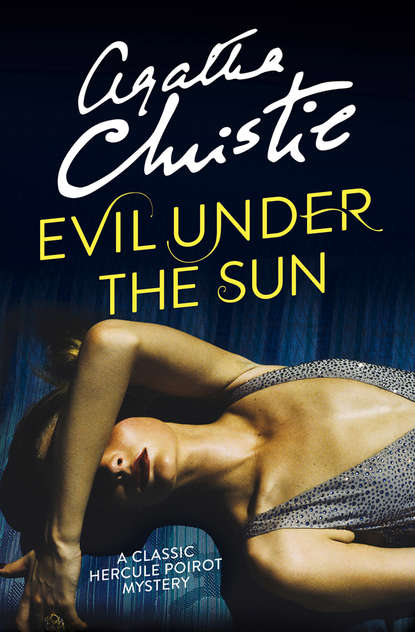По всем вопросам обращайтесь на: info@litportal.ru
(©) 2003-2025.
✖
Evil Under the Sun
Автор
Год написания книги
2019
Настройки чтения
Размер шрифта
Высота строк
Поля
‘What are you looking at so steadily?’
Hercule Poirot replied: ‘I am looking at the exception. At the one man who did not look up when she passed.’
Major Barry followed his gaze to where it rested on a man of about forty, fair-haired and sun-tanned. He had a quiet pleasant face and was sitting on the beach smoking a pipe and reading The Times.
‘Oh, that!’ said Major Barry. ‘That’s the husband, my boy. That’s Marshall.’
Hercule Poirot said:
‘Yes, I know.’
Major Barry chuckled. He himself was a bachelor. He was accustomed to think of The Husband in three lights only—as ‘the Obstacle’, ‘the Inconvenience’ or ‘the Safeguard’.
He said:
‘Seems a nice fellow. Quiet. Wonder if my Times has come?’
He got up and went up towards the hotel.
Poirot’s glance shifted slowly to the face of Stephen Lane.
Stephen Lane was watching Arlena Marshall and Patrick Redfern. He turned suddenly to Poirot. There was a stern fanatical light in his eyes.
He said:
‘That woman is evil through and through. Do you doubt it?’
Poirot said slowly:
‘It is difficult to be sure.’
Stephen Lane said:
‘But, man alive, don’t you feel it in the air? All round you? The presence of Evil.’
Slowly, Hercule Poirot nodded his head.
Chapter 2 (#ulink_decaae8b-f03e-5fe6-b58e-935765dd0234)
When Rosamund Darnley came and sat down by him, Hercule Poirot made no attempt to disguise his pleasure.
As he has since admitted, he admired Rosamund Darnley as much as any woman he had ever met. He liked her distinction, the graceful lines of her figure, the alert proud carriage of her head. He liked the neat sleek waves of her dark hair and the ironic quality of her smile.
She was wearing a dress of some navy blue material with touches of white. It looked very simple owing to the expensive severity of its line. Rosamund Darnley as Rose Mond Ltd was one of London’s best-known dressmakers.
She said:
‘I don’t think I like this place. I’m wondering why I came here!’
‘You have been here before, have you not?’
‘Yes, two years ago, at Easter. There weren’t so many people then.’
Hercule Poirot looked at her. He said gently:
‘Something has occurred to worry you. That is right, is it not?’
She nodded. Her foot swung to and fro. She stared down at it. She said:
‘I’ve met a ghost. That’s what it is.’
‘A ghost, Mademoiselle?’
‘Yes.’
‘The ghost of what? Or of whom?’
‘Oh, the ghost of myself.’
Poirot asked gently:
‘Was it a painful ghost?’
‘Unexpectedly painful. It took me back, you know…’
She paused, musing. Then she said.
‘Imagine my childhood. No, you can’t! You’re not English!’
Poirot asked:
‘Was it a very English childhood?’
‘Oh, incredibly so! The country—a big shabby house—horses, dogs—walks in the rain—wood fires—apples in the orchard—lack of money—old tweeds—evening dresses that went on from year to year—a neglected garden—with Michaelmas daisies coming out like great banners in the autumn…’
Poirot asked gently:
‘And you want to go back?’
Rosamund Darnley shook her head. She said:
‘One can’t go back, can one? That—never. But I’d like to have gone on—a different way.’
Poirot said:
‘I wonder.’
Rosamund Darnley laughed.

















